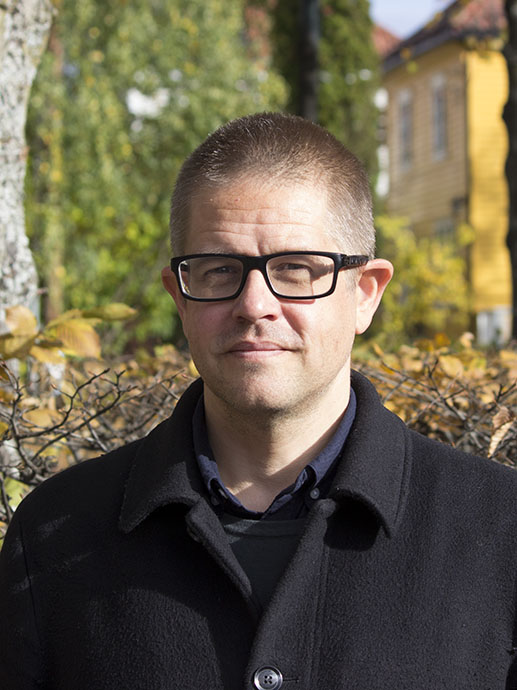It was the interest in nature that brought Tobias Martin all the way from Germany to Oslo. With a PhD in engineering and a career in aquaculture, much of his day-to-day life revolved around technology.
But for Martin, solving climate challenges is more about taking care of nature than finding technological solutions.
“The destruction of nature and climate changes entails that we must change as a society. Even if technology helps us to solve one problem, we’re also creating new ones. I think it's because as a society, we are not willing to accept that we're doing something fundamentally wrong,” he says.
About the 40-credit course group:
Students must choose a complementary subject other than the one in which they are majoring to ensure academic breadth in their degree. At the University of Oslo, this complementary subject is called a 40-credit course group.
The 40-credit course group ‘Environmental Studies – Historical, Cultural and Societal Perspectives’, allows students to choose from eight courses in different humanities subjects. Students must complete four of these courses.
Other education initiatives within the humanities that focus on sustainability are: Bærekraftslaboratoriet (course offered in Norwegian) and the Master’s Supplement of the Oslo School of Environmental Humanities (OSEH).
Bringing multiple perspectives into the workplace
Tobias therefore chose to pursue a bachelor's degree in philosophy at the University of Oslo. This is a subject that allows him to reflect on fundamental questions.
“In environmental philosophy, for example, we talk about why people view nature as if we’re not a part of it,” Tobias says.
For him, the 40-credit course group is the perfect complement to his bachelor's degree. And the interdisciplinary perspectives give him the opportunity to think beyond philosophical perspectives.
“After all, you may not be paid to discuss nature outside of university. But to have insight into how different academic disciplines approach issues related to sustainability and the destruction of nature is useful knowledge to bring into the workplace,” he says.
Subjects that complement each other
Martin has combined four subjects from the fields of philosophy, media studies, cultural history and history. In a semester paper, he chose ‘the zoo’ as his theme and combined insights from several of the subjects.
“When you visit a zoo, you’re paying for an experience, but also an idea that we can keep animals as objects that we can watch,” says Martin.
The course ‘History of Consumption’ gave him the opportunity to explore how the need for zoos has been justified historically, and the course ‘Framing the environment in media and communication studies’ provided insight into how companies, including zoos, present themselves as sustainable and relevant to the future.
Different theories and methods give breadth of knowledge
Eirik Welo is Head of Studies at the Department of Philosophy, Classics, History of Art and Ideas (IFIKK). He explains that an interdisciplinary approach to sustainability gives the students a breadth of knowledge that is relevant to the workplace.
“The major issues that need to be solved in society are not linked to one academic subject, but require insight from multiple fields,” he says.
In the 40-credit course group, the students gain knowledge about how different academic fields approach different questions and issues.

“This presents the students with a variety of theories and methods. The students will discover that disciplines have different ways of working with the same theme, such as music and philosophy, for example. The subjects can both complement and challenge each other, Welo says.
“Our ambition is for students to discover issues that they may not have been aware of based on their specialisation.”
By taking the courses in the 40-credit course group, students can interact with each other across subjects at the faculty, but also with people and organisations outside campus.
“Perspectives on sustainability are relevant for all sectors of society. Thus, insights from the humanities to issues of sustainability are relevant almost everywhere,” Welo says.
This autumn, students in ‘Framing the environment in media and communication studies’ were given the opportunity to solve a problem for a battery manufacturer in a case competition, which was also their examination in the course. Tobias Martin was one of those students.
“It was exciting to have a practical exam and fun to see that the theory we learned in the course came in handy when solving a specific task,” he tells.
